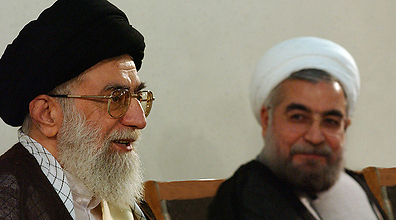Iran’s outdated political ideals
Mohammed Fahad al-Harthi/Al Arabiya
Sunday, 19 April 2015
When it comes to the region’s problems, Iran is always in the conversation with its questionable political affiliations and ambitions. There are the inevitable questions about what exactly its leaders want, and whether they truly believe their current policies will benefit their people. Prince Saud Al-Faisal, the Saudi foreign minister, summed up the situation quite succinctly recently by asking: “How can Iran invite us now to stop fighting? And where was Iran during the infighting in Yemen a year ago?” Judging from Tehran’s behavior, it can only be concluded that they are not interested in the war based on any humanitarian objectives but simply for selfish reasons.
When the Houthis kidnapped officials, killed civilians and terrorized people as they expanded operations across Yemen, Iran did not protest but directly supported the militias by sending 14 flights a week to Sanaa reportedly carrying massive amounts of weapons.
Not a Sunni-Shiite conflict
This is not a Sunni-Shiite conflict and will never be one. Shiites have always been part of Gulf societies. The main problem here is the ersatz revolutionary mindset that Iran is trying to create in the region because of its imperialist designs. No one is saying that Iran does not have the right to protect and develop its territory, and advance its interests abroad. But this cannot be done by interfering in the internal affairs of Arab nations. Post-revolution Iran has failed miserably because there are elements in the country that have prioritized regional expansion through proxy wars and supporting militias militarily and financially. “They are not interested in the war based on any humanitarian objectives but simply for selfish reasons”
So why would Iran adopt a policy that results in conflict and risks depleting its economy? The answer is simple: It has failed to transition its revolution into a viable and working state. The country’s leaders have clearly shown their immaturity in this regard. French philosopher Alexis de Tocqueville stated: “In a revolution, as in a novel, the most difficult part to invent is the end.”Iran has repeatedly attempted to promote and export its revolution abroad, resulting in political and military fallout with countries in the region. It is important to note that is has failed dismally in this quest. On the contrary, the country has had to face up to student revolutionary movements, which were subsequently suppressed, many individuals imprisoned and organizations banned. It has done everything it can to create the impression, patently false and quite opportunistic, that it inspired the 2011 revolutions in the Arab world.
At the start of the so-called Arab Spring, Head of Iranian State Radio and Television Sayyed Ezzatollah Zarghami claimed that the demands of people in North Africa and the Middle East were influenced by the Iranian revolution. However, he failed to apply the same argument to Syria, where Iran instead stood by the Assad regime and even fought against Syrian citizens. Iran continues to play the sectarian card in Iraq, Syria, Lebanon and Yemen. This can only lead to war. The country is playing a dangerous game by trying to mix the unchanging principles of religion with the constantly moving aims of political parties.
Saudi Arabia and its allies have rightly rejected this approach and have focused on restoring the legitimate government of Yemen, not a particular sect or movement. Operation Decisive Storm is therefore critical to the region’s future.
Iran’s other shortcoming is that it has failed to understand the deep and historic relations between the Yemeni and Saudi people. It has not given sufficient weight to the clear desire of the citizens in that country for peace and a negotiated settlement.
Iran’s leaders must start realizing that they cannot operate with reckless abandon in the region, based on outdated revolutionary ideals. They need to abide by international law so that their country can get back on track economically. This will no doubt bring much-needed stability to the region.



















